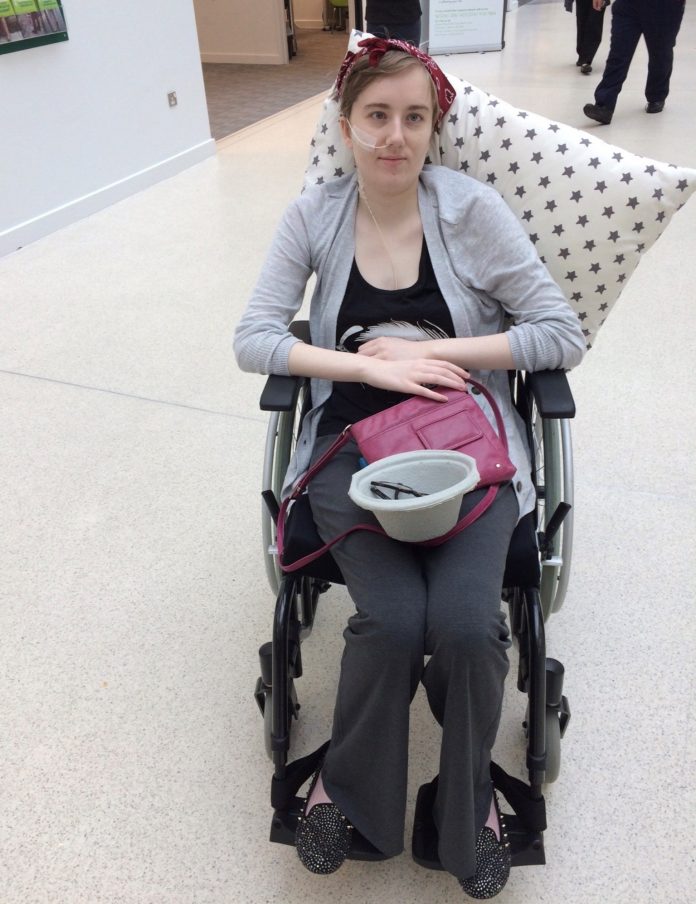Imagine the isolation you’ve been living with became your new normal. You’re unable to meet a friend for coffee, go to your favourite restaurant or travel on holiday. Your job becomes uncertain, and you live your life on permanent lockdown.
This is what life is like for many of the 11,130 adults, children and young people in Greater Manchester living with the serious neurological condition, Myalgic Encephalomyelitis.
Olivia Meads, 24, of Hindley, Wigan, has been sharing her story with UK charity Action for M.E. She has been ill since the age of 15 after developing a virus which she never recovered from.
“My life pre-M.E. was the polar opposite of my life now. I was top of my class at school, every week I would dance three times, go to two drama groups, go hiking and go to lots of rock and emo gigs.
“By age 18 I was too ill to continue my education – I had a place to study my dream course of journalism at uni – and my mum had to give up work to become my full-time carer. I was very independent, which is in stark contrast to now, needing help with everything and unable to do most things.
“The only time I’m able to leave the house is for hospital appointments, and my mum has to push me in my reclining wheelchair. M.E has tainted every facet of my life, at first gradually, and then all-consumingly.”
M.E. affects people’s bodies and brains ability to recover normally after any activity, physical and mental, and however small. On top of the significant daily challenges this presents fluctuating condition presents, much of the support and services people with M.E. in Greater Manchester have come to rely on – such as supermarket deliveries or carers providing personal care – have disappeared overnight.
“We have been contacted by people with M.E. in truly desperate situations,” explains Sonya Chowdhury, Chief Executive, Action for M.E. “So we set up our new Crisis, Support and Advocacy Service to meet this urgent need, sourcing practical local assistance such as help with shopping and picking-up medications, connecting people with peer-support, and advising on the ongoing changes to welfare benefits.
“So far, we have seen a three-fold increase in requests for urgent support – all at a time when our income is expected to drop by at least 50%. Like many other organisations and charities, we made the difficult decision to furlough several staff. We are continuing to make critical decisions to ensure we are here for people with M.E., now and in the future.”
For M.E. Awareness Month throughout May, the charity is encouraging people with M.E. to share their insight and experience when it comes to living with uncertainty and isolation, with the aim of shining a spotlight on this hidden condition.
Olivia said: “The really sad thing is that my life hasn’t changed at all in isolation, I’ve been 95% bedbound for nearly seven years, having to stay in the house all the time is my usual. Being isolated all the time is my usual.
“Although I empathise that it’s a difficult time for everyone right now, I don’t think people realise that in the coming weeks and months when everything goes back to normal, people go back to work, meet friends and family and go on holiday, that that will not happen for me and the thousands of others with severe M.E.
“For lockdown, there’s rough dates set for when things will ease back into normal, for people with M.E our isolation is ongoing for years or decades and no clue when or if there will be reprieve.”
Anyone living with or caring for someone with M.E., of any age, can contact Action for M.E.’s Crisis, Support and Advocacy Service by email at questions@actionforme.org.uk or call on 0117 927 9551.







